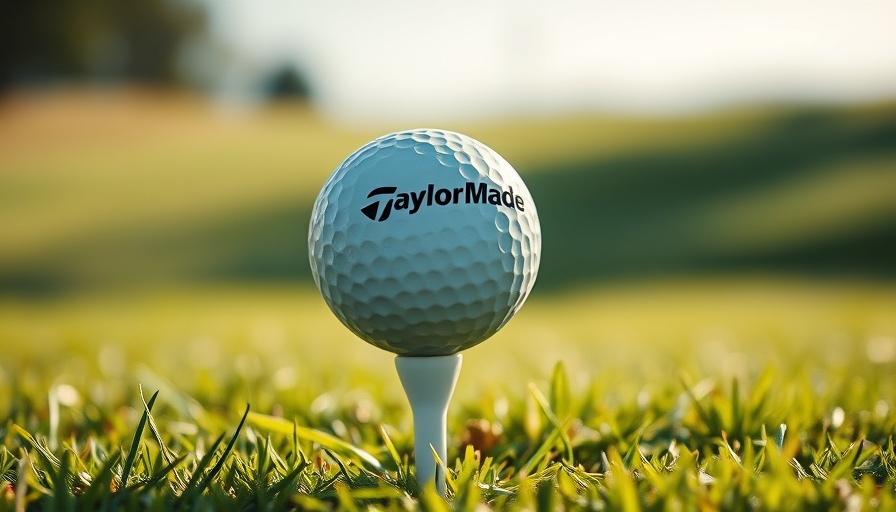
TaylorMade Golf: At the Crossroads of an Ownership Battle
In the world of golf, TaylorMade Golf Co. has established itself as a powerhouse, synonymous with quality clubs that help shape the careers of some of the biggest names in the sport. Players like Scottie Scheffler, Tiger Woods, and Rory McIlroy have all relied on TaylorMade's innovations, contributing to the brand's commanding 15-20% share of the global golf equipment market.
What’s Behind the Ownership Dispute?
The current turmoil centers on a power struggle between two South Korean companies, a scenario that promises to have a significant impact on the future direction of TaylorMade. The confrontation reflects broader themes of corporate governance and market control within sports manufacturing, one that resonates strongly not just in South Korea, but globally, as companies navigate the high-stakes realm of sports branding.
The Larger Picture: Interplay of Sports and Business
This ownership dispute is more than just a corporate tussle; it’s a case study of how interconnected the worlds of sport and business have become. With golf being a multi-billion dollar industry, the stakes are incredibly high. Investors and executives alike are realizing that success on the course can translate directly to profit margins. Yet, with great reward comes great risk, as this dispute exemplifies.
Global Implications of Local Ownership Battles
While the dispute rages in South Korea, its implications are likely to echo across golf circles worldwide. Market dynamics shift dramatically when ownership changes hands, and if one company takes control, it could redefine branding, innovation, and sponsorship within the sport. This could lead to either a refreshing resurgence of creativity in club design or stifled innovation, depending on the new leadership's vision.
Potential Outcomes: What Lies Ahead?
As TaylorMade’s story unfolds, predictions suggest several potential outcomes. Should one company successfully assert its control, expect to see rapid changes in product development and marketing strategies. Conversely, if an amicable resolution is reached, one that fosters collaboration between the two entities, it could herald a new era of joint innovation in golf equipment.
Connecting with Fans: The Emotional Aspect
For the dedicated fanbase and recreational golfers alike, this ownership tussle is more than just corporate chatter; it’s about the future of their favorite products. Many fans have brand loyalty that transcends the average consumer relationship. They associate their success on the course with the gear they use, making it imperative for TaylorMade to navigate this crisis carefully to maintain its devoted consumer base.
In Conclusion: The Future of Golf Equipment Innovation
Understanding the complexities behind ownership disputes such as this one offers valuable insights into the business of sports. As these corporate dynamics play out, fans should pay attention to how they affect not just the products crafted, but the players who use them, and the future of the game itself. Whether you’re a casual golfer or a dedicated fan, the outcome of this struggle could well impact your experience on the course.
Now, more than ever, it’s crucial for consumers to engage with the brands they love, keeping an eye on how the business side affects the sport they cherish. Stay informed about the changes unfolding in the realm of golf, as your favorite clubs may soon be undergoing a transformation that could change the game forever.
 Add Row
Add Row  Add
Add 




Write A Comment